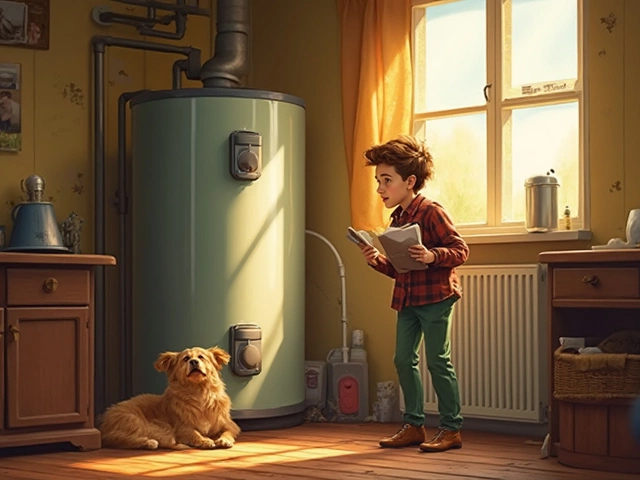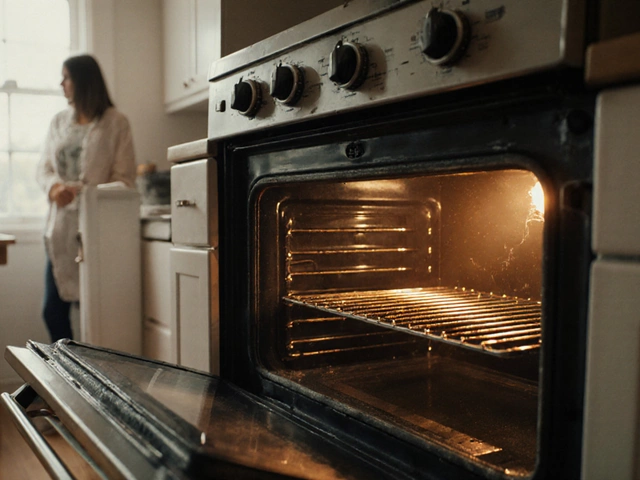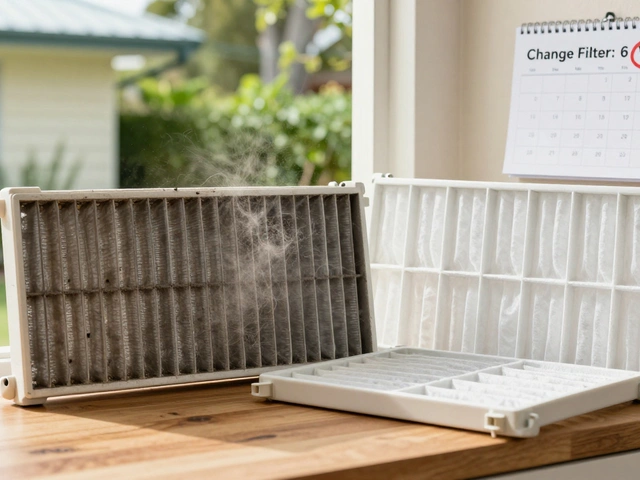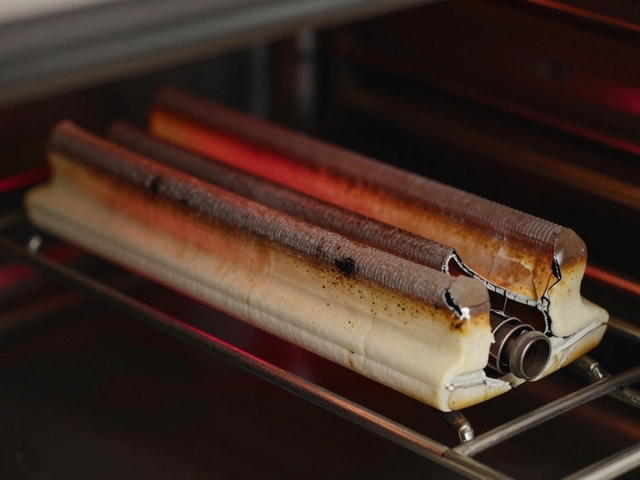When it comes to keeping warm, cozy showers part of your daily routine, the humble water heater plays a quietly crucial role. But, have you ever wondered just how long these essential appliances are meant to last? Could your faithful old tank warm your home faithfully for 30 winters?
This question piques the interest of many homeowners aiming for the optimal balance between utility longevity and efficiency. And while some may have anecdotal tales of exceptional endurance, understanding the realistic lifespan of water heaters involves sifting through a range of factors.
Let's navigate the world of water heaters to uncover truths about their durability, what influences their longevity, and how to extract every extra year possible from your heater. From routine check-ups to technological leaps, there's much to explore in ensuring you're never left in the cold.
- Understanding Water Heater Lifespan
- Factors Influencing Water Heater Durability
- Maintenance Practices for Extended Longevity
- Signs Your Water Heater Needs Replacement
- Innovations in Water Heater Technology
Understanding Water Heater Lifespan
When it comes to the longevity of a water heater, it's a topic veiled in both myth and reality. The typical life expectancy of a traditional storage tank water heater ranges from 8 to 12 years, depending on various factors such as frequency of use, water quality, and routine maintenance. A staggering thought, though, is whether these trusty appliances can endure beyond two decades, or even stretch close to the 30-year mark. But before diving into such ambitious expectations, it's crucial to understand what influences their longevity.
The construction of the water heater plays a significant role. For instance, units made with higher-quality materials naturally tend to outlast their cheaper counterparts. The inner lining, often coated with glass or a porcelain material, helps ward off corrosion, which can cut a heater’s life short. Choosing a unit with an effective anode rod, designed to attract corrosive elements, can be another factor that significantly extends its life by preventing rusting of internal components. In addition, gas water heaters typically offer a slightly longer life expectancy compared to electric ones due to fewer parts and their simplicity.
Another aspect of longevity is the installation process. A correctly installed water heater operates within optimal parameters, avoiding strains caused by pressure or electrical issues. Improper installation might not just reduce life expectancy but can also lead to inefficiencies or even safety hazards. As homeowners, it's essential to be aware that domestic duties such as laundry and dishwashing create natural wear and tear, gradually limiting the lifespan of even the sturdiest water heaters.
Many experts advocate for regular maintenance as a key to extension. Flushing the tank every six months, checking the anode rod annually, and inspecting the pressure relief valve can add years to the life expectancy. According to the U.S. Department of Energy, performing these simple checks not only prolongs the lifespan but also maintains energy efficiency, saving both time and money in the long run.
"Maintenance is the lifeblood of efficiency and durability, transforming a standard model into a long-lasting appliance," states Jennifer Martin, a senior analyst at the Home Appliance Institute.
Beyond the typical tank model, tankless water heaters offer fresh perspective and promise on extended life spans. These devices, which heat water on demand, claim an operational life of up to 20 years. Their absence of a standing water reservoir reduces susceptibility to corrosion, a common killer of tank-style heaters.
Interestingly, the geographical location and municipal water quality can also significantly influence longevity. Hard water, rich in minerals, speeds up scale buildup, necessitating more frequent maintenance and reducing service life. Conversely, regions with soft water may see their water heaters outlasting expectations, thanks to the fewer mineral deposits.
Ultimately, aiming for a water heater lifespan that nudges the 30-year mark should involve strategic selection, careful installation, and ongoing maintenance. While not every unit will achieve this goal, informed decisions at every stage can bring homeowners closer. Remember, a balance between immediate purchase cost and long-term durability benefits all when well-navigated in the world of water heaters.
Factors Influencing Water Heater Durability
Understanding what affects the lifespan of water heaters is crucial for any homeowner aiming to get the most value out of their investment. The longevity of a water heater largely depends on several intertwined factors. The first and most significant factor is the type of heater itself. Different models and technologies, like tankless, traditional tank, or hybrid units, boast varying life expectancies. Typically, tankless heaters are celebrated for their extended lifespan, often lasting 20 years or more, compared to the 10 to 15-year range commonly seen with conventional tank models. The materials used to manufacture these appliances also play a key role. High-quality materials such as stainless steel and durable anode rods can benefit a heater's life, significantly warding off common issues like rust and corrosion.
Water quality is another pivotal factor. Areas with hard water, rich in minerals like calcium and magnesium, often experience faster wear and tear on their water heater units. These minerals can accumulate over time, leading to scale buildup which hampers efficiency and deteriorates critical components. Regular maintenance, like flushing the tank annually, is often recommended to mitigate these effects. In cases of excessive mineral content, investing in water softeners can drastically enhance the lifespan of your unit by protecting it from mineral deposits. Another aspect that cannot be overlooked is installation quality. Improper installation can lead to issues such as inefficient heating and frequent repairs, cutting the appliance's life short. It's imperative to ensure that the unit is correctly fitted by certified professionals to avoid such pitfalls.
Beyond this, usage patterns also significantly impact how long a heater might sustain its optimal performance. A water heater in a household with a high demand will generally experience more wear than one used less frequently. Thus, adjusting the settings to match the specific household needs can prevent overuse. Environmental factors, like the room temperature where your water heater is installed, can also influence its longevity. Fluctuations between harsh cold and scorching heat can stress the unit. Giving consideration to these environmental factors can enhance its efficiency and durability.
Innovations in water heater technology have introduced smart features that can offer homeowners enhanced insights into their maintenance needs, potentially prolonging the unit's life. The advent of these technologies enables smarter maintenance through early detection of issues, before they become significant problems. All these considerations underscore the importance of an informed approach to purchasing, installing, and maintaining a water heater if you aim to achieve that elusive 30-year lifespan. This strategy can be highly beneficial, especially when considering that an average water heater replacement could cost anywhere from $800 to $1,500 based on the model and installation specifics.
"Regular maintenance and mindful usage remain the pillars of achieving maximum water heater durability," according to the experts at the National Appliance Energy Conservation Council.
Ultimately, the keys to ensuring your water heater approaches the 30-year mark lie in consistent maintenance, choosing the right model, and understanding the local water composition. With attention to these details, homeowners are likely to enjoy an efficient, long-lasting heating experience, avoiding the common pitfalls of premature wear and costly repairs.
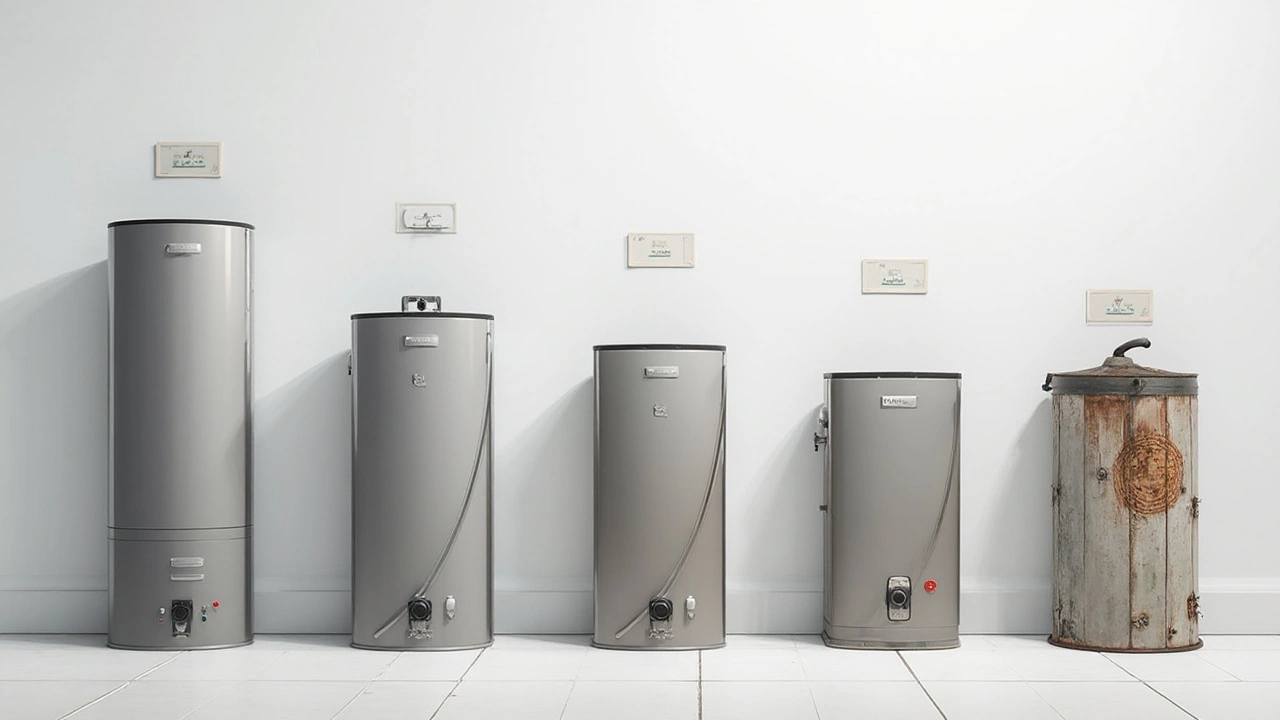
Maintenance Practices for Extended Longevity
Ensuring that your water heater serves you for as long as possible isn't just a matter of chance or hoping for the best. It requires a consistent and informed approach to maintenance that addresses the various challenges your heater might face throughout its life. Regular maintenance is not only about fixing issues but preventing them from arising in the first place. By meticulously keeping up with a maintenance schedule, homeowners can significantly prolong the life of their water heaters.
One of the most basic yet critical maintenance practices involves routinely flushing the tank. Sediment buildup is a common issue that plagues both electric and gas water heaters, diminishing their efficiency and shortening their lifespan. Over time, minerals present in the water settle at the bottom of the tank. This layer of sediment can insulate water from the heater, compelling the unit to work harder and potentially causing overheating. Flushing the tank at least once a year can help remove this sediment, enhancing the heater’s performance and reducing undue strain on its components.
Aside from flushing, inspecting and replacing the anode rod is another essential step in maintaining a water heater. The anode rod acts as a sacrificial component that attracts corrosive elements in the water, saving the tank from rust and damage. Typically, these rods should be checked every few years and replaced when they have corroded significantly. Replacing a worn-out anode rod is an inexpensive task compared to the cost of repairing or replacing a rust-damaged tank, yet it's one that many people overlook until it's too late.
Maintaining appropriate water pressure is also crucial. When water pressure exceeds the recommended levels (usually around 60 to 80 psi), it can exert excessive force on your plumbing system, leading to potential leaks and damage over time. An affordable pressure gauge can be attached to an outdoor faucet to test the pressure regularly. If adjustments are necessary, a pressure-reducing valve can be installed to maintain safe pressure levels, shielding your water heater from undue stress.
"The longevity of a water heater isn't just about its brand or the number of times it's turned on; it's about how well you care for it," suggests Ian Douglas, a leading industry expert.Fans of technology and gadgets might appreciate tools like smart thermostats and leak detectors, which provide additional layers of protection and efficiency. These devices can alert homeowners of potential issues before they become significant problems, such as leaks or extreme temperature fluctuations. Embracing these technologies not only aids in maintaining water heaters but also fits neatly into modern lifestyles demanding convenience and good stewardship of household resources.
Additionally, regularly checking the temperature setting of your water heater can prevent overheating and potential scalding hazards while conserving energy. The ideal temperature setting should be around 120 degrees Fahrenheit. This temperature is comfortably hot for most uses and reduces the risk of mineral buildup, which tends to accelerate at higher temperatures. Sometimes, a simple twist of the dial is sufficient to lead your water heater into a harmonious balance of performance and longevity.
By conscientiously adhering to these maintenance practices, you engage in a proactive role that not only extends the lifespan of your water heater but also ensures its efficient operation. The beauty of maintenance lies in its ability to transform a standard appliance into a long-lasting investment, reducing the need for emergency repairs and costly replacements. A well-maintained water heater adds unquantifiable comfort to a home, delivering peace of mind along with hot water.
Signs Your Water Heater Needs Replacement
Understanding when to replace your water heater isn't just about preventing cold showers; it's also about avoiding potential disasters like water damage from leaks or burst tanks. An average water heater boasts a lifespan between 8 to 12 years, but with the right care, some tank models can stretch beyond this range, while others, relying on the unpredictability, may require replacement sooner. One unmistakable sign is the inconsistency in water temperature. If you've noticed that the water isn't as hot as it used to be, or if it's vacillating between cold and hot when it shouldn't, it might be a telltale sign that your heater is gasping for a replacement.
An often overlooked issue is rusty water. Discolored water is more than just an eyesore; it signals corrosion either inside the tank or on the connecting pipes. If the rust is coming from your water heater itself, replacement is virtually imminent. Listen closely in the quiet moments—strange noises emanating from the heater, such as popping, rumbling, or clanking sounds, can indicate sediment buildup. This buildup not only reduces the efficiency of your appliance but also causes damage over time. In some severe cases, water might pool around the unit, indicative of a dire leak or fracture.
Look at the age of the heater. A quick glance at the manufacturer's sticker will reveal its date of production. Once it's a decade old, you're likely overdue for a new heater, even if it appears to be operating nominally. Consider inspecting your utility bills as well. A spike in heating costs often correlates with a failing water heater struggling to maintain efficiency. For those who lean on expert opinions, John Smithson of the Home Safety Institute once noted,
"An aging water heater is much like an old car; it'll run, but each mile costs more and brings you closer to breakdown."If you find a sudden increase in repair frequency for your current heater, it might be wisest to allocate those funds toward a new unit instead.
Finally, it's vital to remember that technological advances have significantly improved modern water heaters, providing higher efficiency and reliability. Investing in a new model could lead to savings on energy bills, improved performance, and increased peace of mind regarding safety. By being aware of these signs, you can replace your water heater before it leaves you in the dreaded cold.
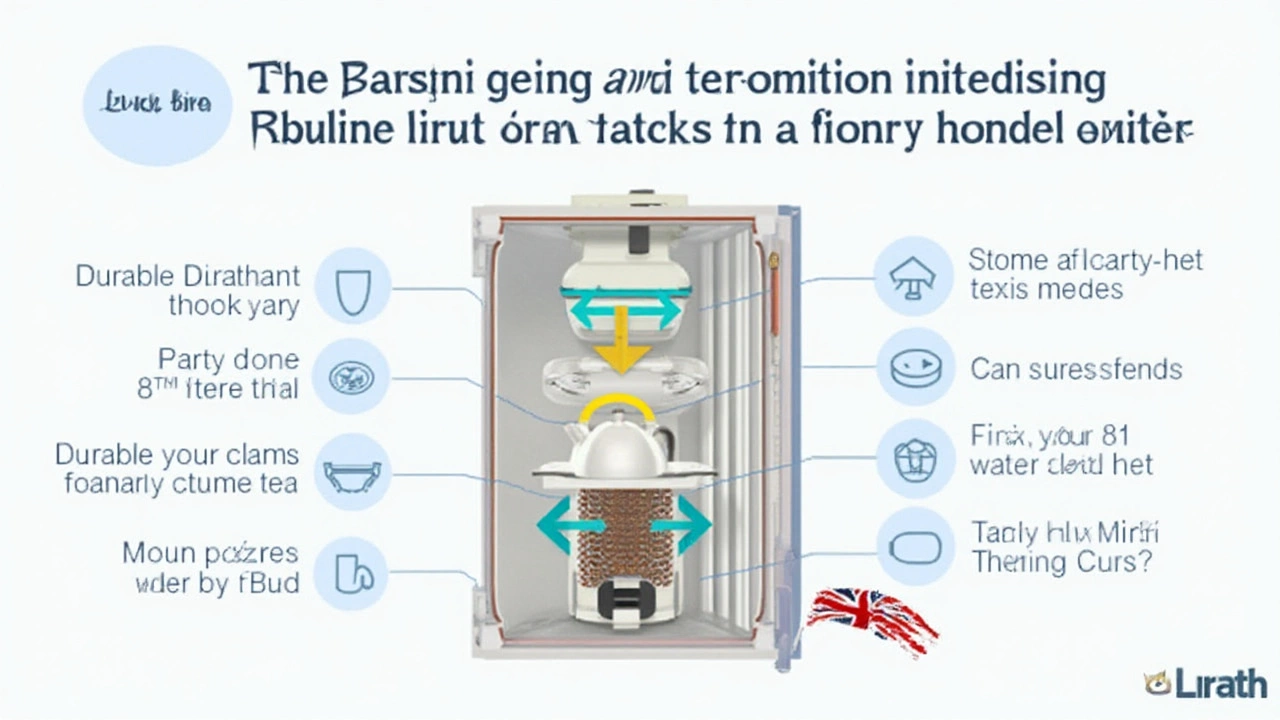
Innovations in Water Heater Technology
Water heaters have come a long way from the cumbersome, energy-guzzling units of the past, evolving into sophisticated appliances that blend energy efficiency with cutting-edge technology. The modern-day water heater is a testament to how advancement in technology can redefine traditional processes, making them more efficient and sustainable.
One of the most significant innovations in this field is the introduction of tankless water heaters. Unlike their traditional tank counterparts, these systems heat water on-demand rather than storing it. This eliminates the standby heat losses associated with tank water heaters, making them highly energy-efficient and ideal for smaller spaces. Although initially more expensive, their longevity and efficiency often translate to cost-effectiveness over time.
Hybrid water heaters are another breakthrough, designed to combine the benefits of traditional tanks and modern technology. They use a heat pump to draw in ambient air, heat it, and then transfer it to the water tank. This approach not only reduces energy consumption by up to 60% but also emphasizes the longevity of the unit itself, which potentially adds years to its service life.
"The push towards smarter, connected appliances is more prominent than ever, and water heaters are no exception," says Rachel Morton, a senior analyst at Energy Efficiency Institute. "Innovations in this space are critical not just for energy savings, but for user convenience and control."
Smart water heaters equipped with WiFi capabilities are also making waves. They allow users to monitor energy usage and control heater settings remotely via smartphones or voice-activated assistants. This not only provides unprecedented convenience but also aids in identifying potential issues before they become serious, possibly extending the unit's lifespan.
Solar-powered water heaters, tapping into renewable energy sources, emphasize sustainability and minimized carbon footprints. These systems capture sunlight to heat the water and are often supplemented with electric or gas backup for cloudy days, creating a balance between eco-friendliness and reliability.
Finally, innovations are also evident in the materials used for water heater manufacturing. Advances in corrosion-resistant linings and high-efficiency heating elements have played a crucial role in enhancing the durability and lifespan of water heater units.
| Feature | Benefit |
|---|---|
| Tankless Systems | On-demand heating, space-saving |
| Hybrid Mechanisms | Energy efficiency up to 60% savings |
| WiFi Connectivity | Remote monitoring and control |
| Solar Power | Renewable energy sourcing |
The race towards innovation in water heater technology is as much about enhancing the journey of heating water efficiently as it is about meeting ecological targets and supporting sustainability. These advances not only aim to improve the lives of homeowners, ensuring their water heaters last for decades but also align with broader goals of reducing energy consumption and embracing smart technology.

